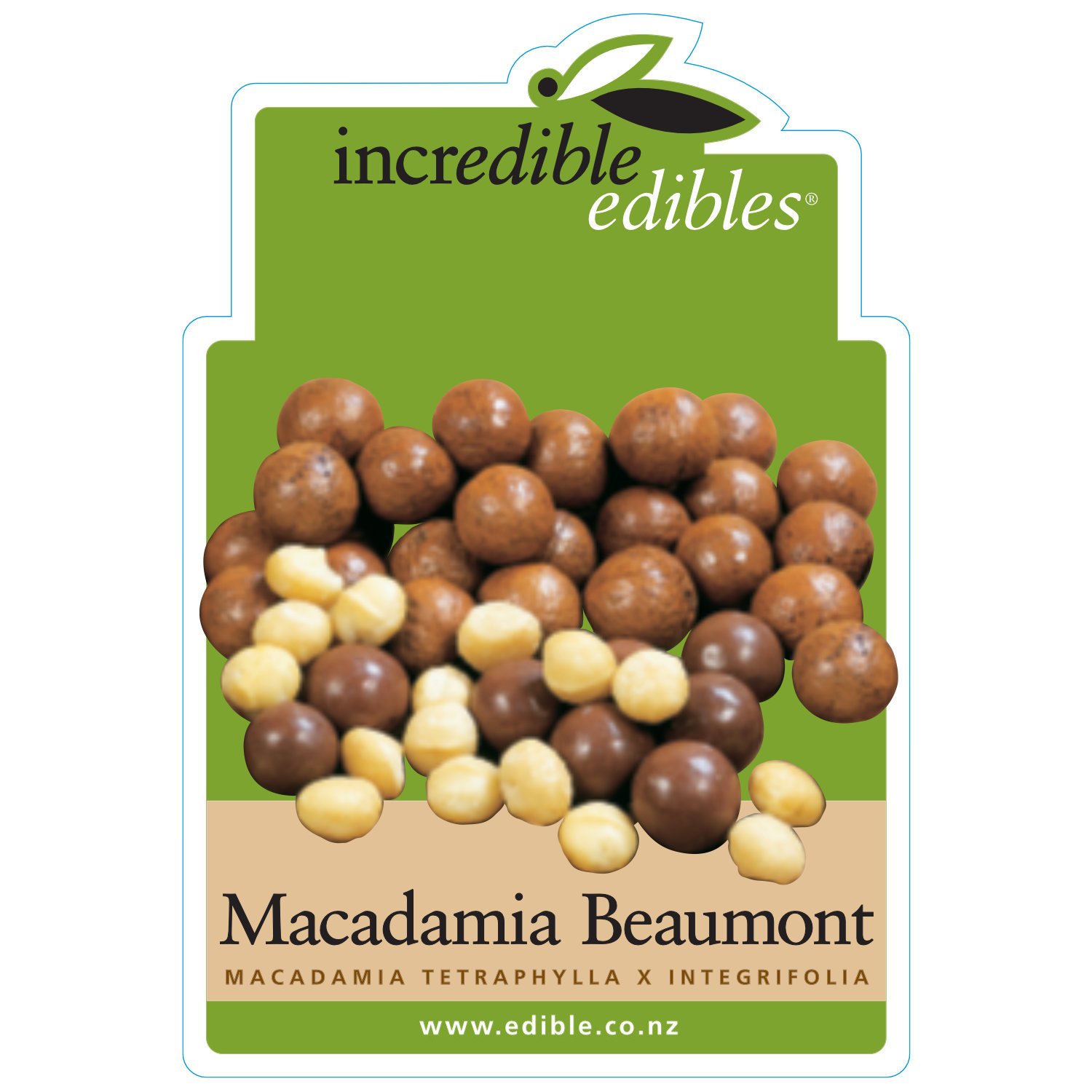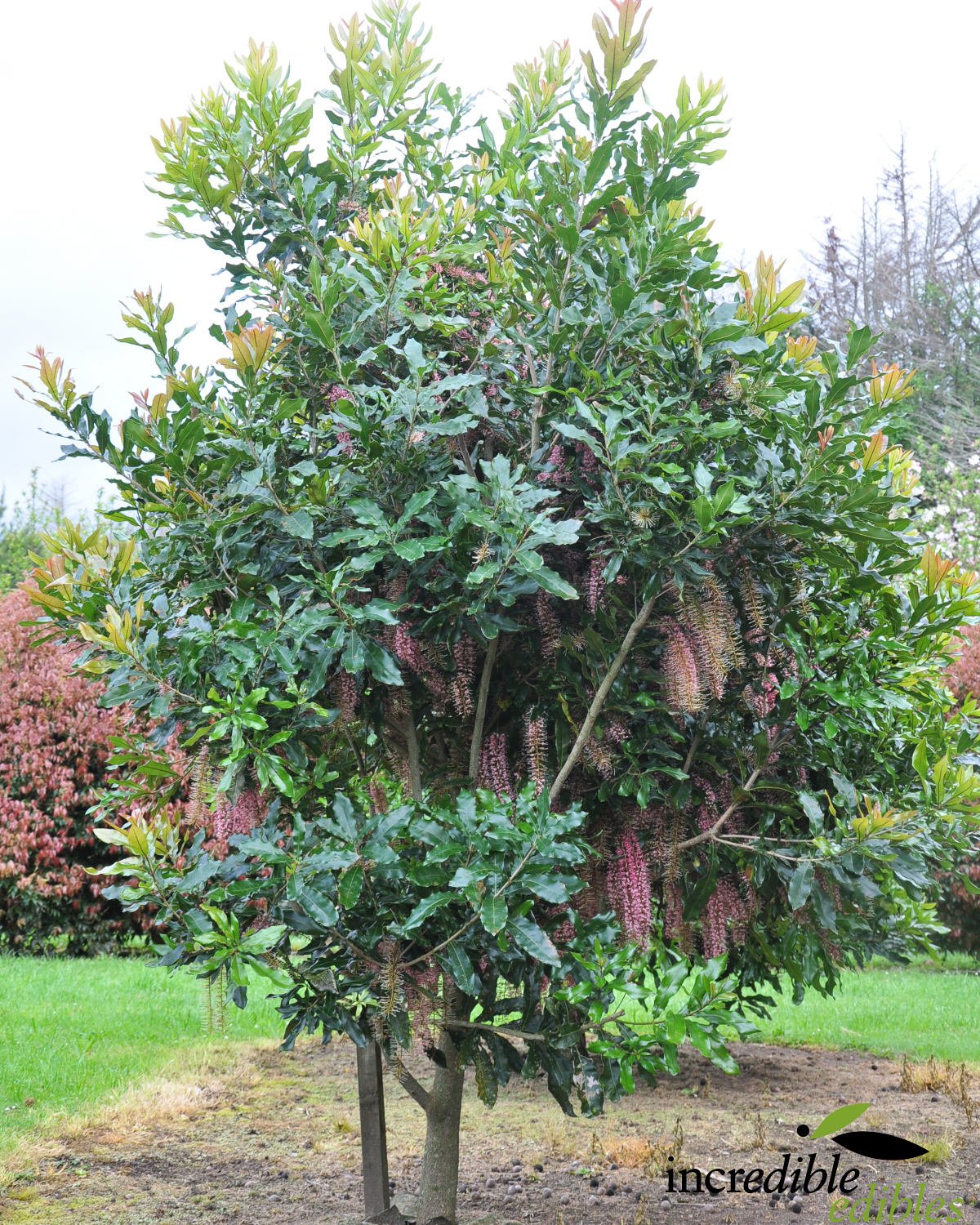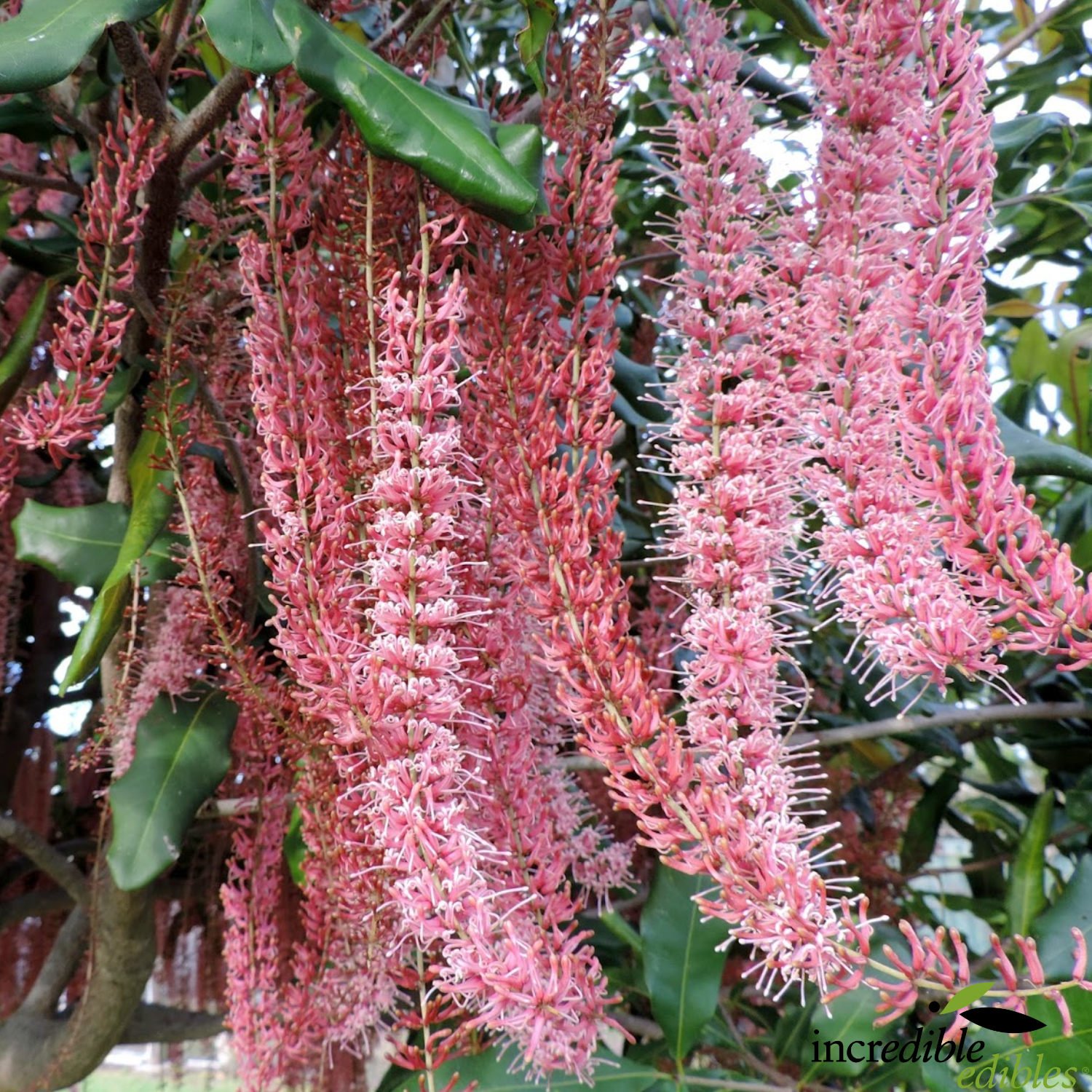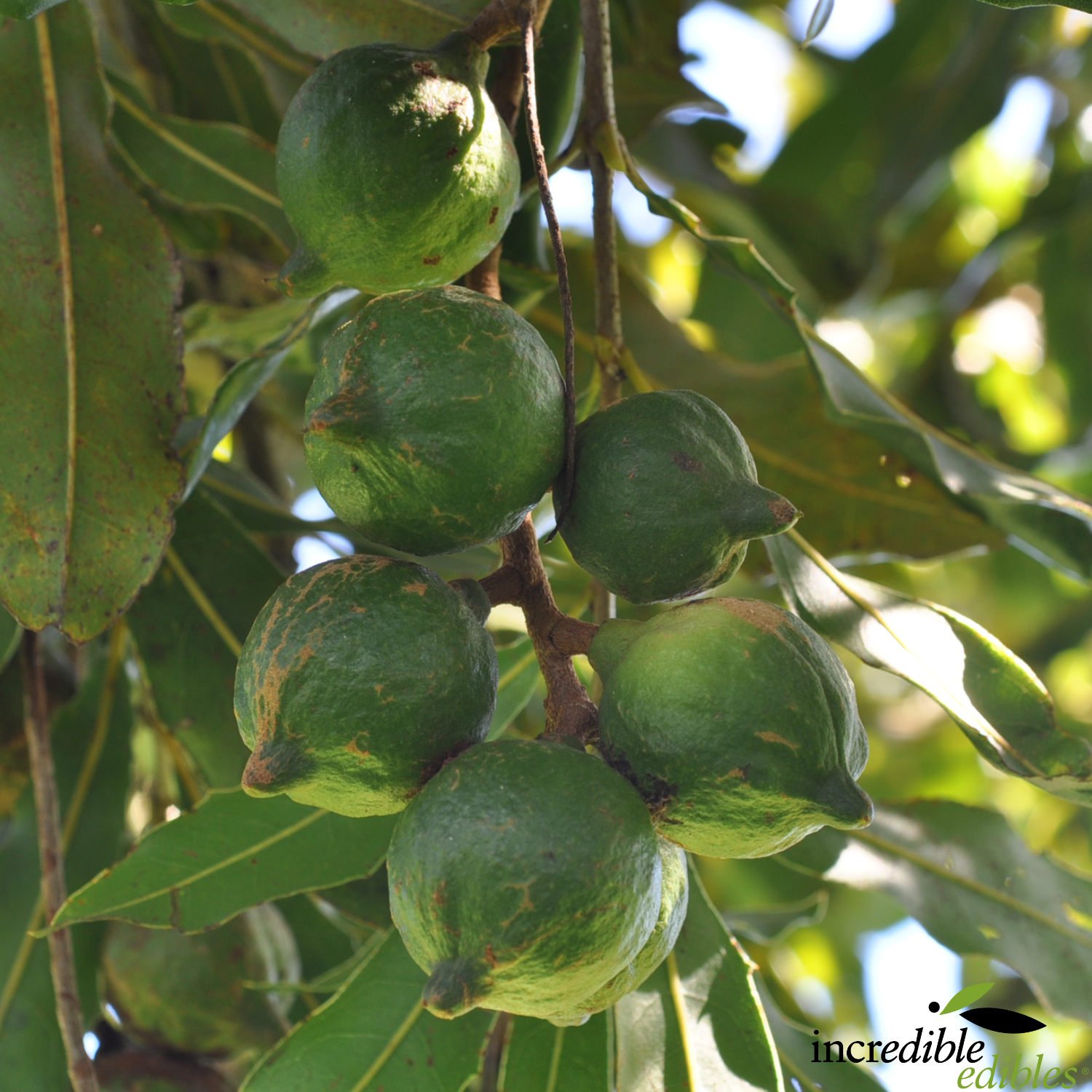 Image 1 of 4
Image 1 of 4

 Image 2 of 4
Image 2 of 4

 Image 3 of 4
Image 3 of 4

 Image 4 of 4
Image 4 of 4





Macadamia Beaumont
Macadamia Beaumont is a New Zealand bred variety and is the one most commonly grown commercially. It is also a consistent producer for the home garden. Perfumed pink flowers will become heavy yields of large nuts that need to be picked as they will not drop. Nuts hang in clusters, with the kernel sitting inside a woody round shell. Beaumont has excellent texture and flavour, but the nut tends to be high in sugar. Delicious raw, roasted, seasoned, dipped in chocolate or used in sweet or savoury dishes.
Stake to support in the first few years and prune to develop a strong structure (no narrow-angle branches). As the tree matures, take out the centre (to let light in) and try to keep it to 3-4 metres high. Remove dead or damaged branches.
It takes 4-5 years to first fruit and 7-8 months for the nuts to mature. Harvest from August when nuts are full size. To test, pick a few nuts remove green husks and check the colour of the inside of the husk lining. When dark brown, harvest the lot. Wear gloves and cut-out socks for forearms, as leaves are prickly. Put a tarp under the tree, pull down by hand or use a shepherd's hook. Don't pick in the rain, as nuts hold too much moisture.
Post-harvest
1. Remove green husks within 48 hours of picking. Spread the in-husk nuts in a thin layer in the weather for 24hrs. The husks will dry and spilt so they can be removed with a knife.
2. When nuts are harvested, nuts have 23% moisture; the ideal for cracking is 1.5%, so they need to be dried out. Put nuts in an onion bag in an airy, sheltered, rat-free place for 6-8 weeks. Shake the bag regularly so the nuts don't stick to the shell in one place. They will store in an onion bag in a dark, airy place for several years. Note: Nuts, like timber, will absorb and lose moisture depending on humidity.
3. The dryer the nut, the easier to crack. After 6-8 weeks, put nuts in the oven overnight (turned off but still warm from cooking dinner) for 4-5 consecutive nights.
4. Crack with a macadamia nut cracker or use vice grips, woodwork vice, or place the nut in an indentation and hit with a hammer. This will keep the kids amused for hours.
Macadamia tetraphylla x intergrifolia ‘Beaumont’
Macadamia Beaumont is a New Zealand bred variety and is the one most commonly grown commercially. It is also a consistent producer for the home garden. Perfumed pink flowers will become heavy yields of large nuts that need to be picked as they will not drop. Nuts hang in clusters, with the kernel sitting inside a woody round shell. Beaumont has excellent texture and flavour, but the nut tends to be high in sugar. Delicious raw, roasted, seasoned, dipped in chocolate or used in sweet or savoury dishes.
Stake to support in the first few years and prune to develop a strong structure (no narrow-angle branches). As the tree matures, take out the centre (to let light in) and try to keep it to 3-4 metres high. Remove dead or damaged branches.
It takes 4-5 years to first fruit and 7-8 months for the nuts to mature. Harvest from August when nuts are full size. To test, pick a few nuts remove green husks and check the colour of the inside of the husk lining. When dark brown, harvest the lot. Wear gloves and cut-out socks for forearms, as leaves are prickly. Put a tarp under the tree, pull down by hand or use a shepherd's hook. Don't pick in the rain, as nuts hold too much moisture.
Post-harvest
1. Remove green husks within 48 hours of picking. Spread the in-husk nuts in a thin layer in the weather for 24hrs. The husks will dry and spilt so they can be removed with a knife.
2. When nuts are harvested, nuts have 23% moisture; the ideal for cracking is 1.5%, so they need to be dried out. Put nuts in an onion bag in an airy, sheltered, rat-free place for 6-8 weeks. Shake the bag regularly so the nuts don't stick to the shell in one place. They will store in an onion bag in a dark, airy place for several years. Note: Nuts, like timber, will absorb and lose moisture depending on humidity.
3. The dryer the nut, the easier to crack. After 6-8 weeks, put nuts in the oven overnight (turned off but still warm from cooking dinner) for 4-5 consecutive nights.
4. Crack with a macadamia nut cracker or use vice grips, woodwork vice, or place the nut in an indentation and hit with a hammer. This will keep the kids amused for hours.
Macadamia tetraphylla x intergrifolia ‘Beaumont’

